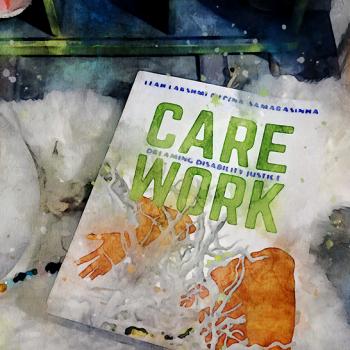As part of my work for Convocation I am posting my workshop notes both here and at my Patreon account. I had a great group at my workshop, and I want to thank everyone who attended.
Edit: you can listen to the actual workshop here!
“The unexamined life is not worth living” Socrates
A definition of Willpower: control deliberately exerted to do something or to restrain one’s own impulses.
What are you working on that they want to have more willpower?
Ideas of will:
Thelemite Will:
Thelma is a magio-religious group created by Aleister Crowley in the early 1900’s The Thelemites have their “Love is the Law, Love under Will” and if you’ve ever hung out with any thelemites you’ll most likely get into some pretty intense discussions about what Will means. There’s your Higher Will, the idea that you have a self that lasts more than this lifetime that has plans for you that involve more than watching tv and earning enough money to keep you in video games and funyuns. This is your Big Will in capitol letters.
Stoic Will:
The Stoics as we call them were a group of philosophers that started in ancient Athens by Zeno of Citium in the early 3rd century BC. This tradition continued with Epictetus, Seneca, and Marcus Aurelius. They were focused on the idea of virtue as a way to a happy life and believed that self-control and inner strength were the way to achieve this. They believed that one should turn to inner control rather than external circumstance to find tranquility, freedom, and calm.

Epicictetus:
“Some things are up to us and some are not up to us. Our opinions are up to us, and our impulses, desires, aversions—in short, whatever is our own doing. Our bodies are not up to us, nor are our possessions, our reputations, or our public offices, or, that is, whatever is not our own doing. The things that are up to us are by nature free, unhindered, and unimpeded.”
There were four main virtues of Stoicism: wisdom, justice, courage, and our last, moderation which is what concerns us here. It is subdivided into good discipline, seemliness, modesty, and self-control.
So we see that moderation is connected to self-control and will.
Talk about the celts, Taboo stories, how willpower seems to be an ongoing struggle.
Ask for lore examples.
Modern Willpower research
The marshmallow test is a well known set of psychological experiments done in the 60’s and 70’s. They were researching delayed gratification by asking small children to choose between a smaller immediate gratification or a larger prize if they were willing to wait. The reward was commonly a marshmallow. Age was obviously linked to the ability to wait for the larger reward, but some children at a younger age were able to hold out. They used lots of tricks, like covering their eyes or distracting themselves, kicking the table, or even pretending that the marshmallow was a friend or an animal. Also important was the child’s ability to trust the experimenter to follow through.
They followed up with the original participants in 1990 as well as 2011 and that’s where things get really interesting. The kids that were able to delay gratification were significantly more successful than the ones that couldn’t and their brains showed more ability to resist addictive stimuli.
So are we all just screwed if we aren’t naturally good at delaying gratification? Nope. Because what we are talking about here is willpower.
But the marshmallow test seems to indicate that there is an innate ability to delay gratification, right?
We do have natural inclinations. The ancients termed this as the temperaments: sanguine (optimistic and social), choleric (short-tempered or irritable), melancholic (analytical and quiet), and phlegmatic (relaxed and peaceful). But we all know we’re better at some things than others. I have a tiny obsession with Myer Briggs, which is a personality assessment, and it’s been helpful to for me to be able to be honest with myself about some of my flaws. I am super scatterbrained, and I also know I tend towards depression or the melancholic.
But that doesn’t mean I need to be depressed. Likewise, if you have a lack of willpower that doesn’t mean you can’t build it. Turns out willpower is like a muscle. Modern research has found out some neat things.
We have limited willpower. When we use it we tax the Anterior cingulate cortex, the amygdala and the prefrontal cortex! Just like in the marshmallow test.
- Anterior cingulate cortex: controls lower functions like blood pressure and heart rate, but also things like reward anticipation, decision-making, impulse control.
- Amygdala: memory, decision-making, and emotional reactions. When the amygdala goes wrong you can’t control your emotions.
- Prefontal Cortex: planning complex cognitive behavior, personality expression, decision making, and moderating social behaviour
But just like we can study for a math test, we can study for a willpower test.
In fact, when we are trying to achieve a goal psychologists have found that there are three components: Willpower, Motivation, and a goal and a plan to achieve it.
Willpower
- Limit your choices
- Pick you timing
- Plan for failure
- Build a likeminded community (peer pressure can work for you!)
- Get sleep
- Out of sight, out of mind. Just like those little kids trying to get the second marshmallow.
- Meditate
- Practice delaying gratification. It is better to have one cookie a day than no cookies at all.
- Think about diet. Sugar, caffeine, food allergies, addiction.
What of that do you think you might be able to implement?
Motivation
Extrinsic versus intrinsic
Extrinsic comes from an external source. It is the idea of the carrot and the stick.
Intrinsic Motivation:
Autonomy, Mastery, Purpose and Connection
Intrinsic Motivation comes from within. We have biological drives: we need food, water, and sex gratification this is the biological drive and it’s powerful stuff. But if you leave a monkey alone with a lock puzzle, turns out the monkey will complete it, for no reason, no encouragement, and no reward. Just because.
But the truth of human (and animal) is far more complicated. Turns out we just like to do shit. We like it. When left to our own devices, we try things out. We do. We make up songs and rituals just for shits and giggles.
It also turns out that when we do things because we just want to, we’re better at it. We are smarter faster and we make less mistakes.
Rewards can actually make work feel more like drudgery and the bigger the reward the worse the performance. (school implications? Untraining ourselves.)
Mixing rewards with inherently interesting, creative, or noble tasks is destructive.
A lot of what we do within Pagandom is intrinsic motivation, be careful to consider if you are doing a thing because you Ought to or because you Want to.
A goal and a plan to achieve it:
- Wise goal setting is important. Not all goals are equal. Goals for intrinsic reasons not external ones, because you want to do the thing are good for focus. Goals to achieve a reward can cause unethical behavior, short term thinking, and shortcuts.
- Adding in a punishment for failure isn’t always going to work either! In some cases it makes it worse! There was a day care center that put up a sign that anyone who was late would be charged. The idea was that the punishment (charging money) would keep people from being late. In fact, it increased lateness by almost double!
- Lots of rewards can create an addiction to rewards.
- Rewards are good when: a large amount of desperate work needs to get done, especially if it’s boring and repetitive.
- Implications for oaths: using a punishment won’t work. Instead, think about the things that you do that sap your willpower. I would suggest using one or more of those things as the thing you will change if you cannot complete your oath.
Habit building gives willpower a break (devotionals!) Habits take six successful steady weeks to set in, and then calorie needs decrease.
- Memorization can make things easier and build willpower.
- Define your goal clearly, just like with divination.
- Build routines and self awareness.
Emergency Tactics:
If you’re freaking out and feeling like your feels are going off the rails:
- Engage the Prefrontal cortex with thinking hard thoughts. Doing math problems?
- Visualization techniques
- Mediation
- If you just can’t seem to get that last little bit done:
- Rewarding yourself
- Anchors
- Giving into gratification for a greater goal
Building your willpower is like tending a fire. You do it consciously, and if you are wise, carefully. By preparing and making sure you have the things you need at hand, you can succeed. A fire needs proper kindling, to be built so that air circulates and oxygen is available, larger logs to feed the flame. We’ve talked about a lot of options to increase your willpower, so I hope you will.
If you went to my workshop or if you learned something, consider supporting my work at my patreon account. Thank you.
Bibliography:
Irvine, William B. A Guide to the Good Life: The Ancient Art of Stoic Joy. Oxford: Oxford University Press. 2009.
Lyubomirsky, Dr. Sonja. The How of Happiness. New York: Penguin. 2007.
McKay, Brett, Kate McKay. Willpower Part I, II, and III.http://www.artofmanliness.com/2012/01/01/willpower. Jan 1, 2012.
Pink, Daniel. Drive. New York: Penguin. 2009.
White, Nicholas. The Handbook of Epictetus. Indianapolis: Hackett Publishing. 1983.
Tredennick, Hugh. Plato: The Last Days of Socrates. New York: Penguiin. 1954.
















